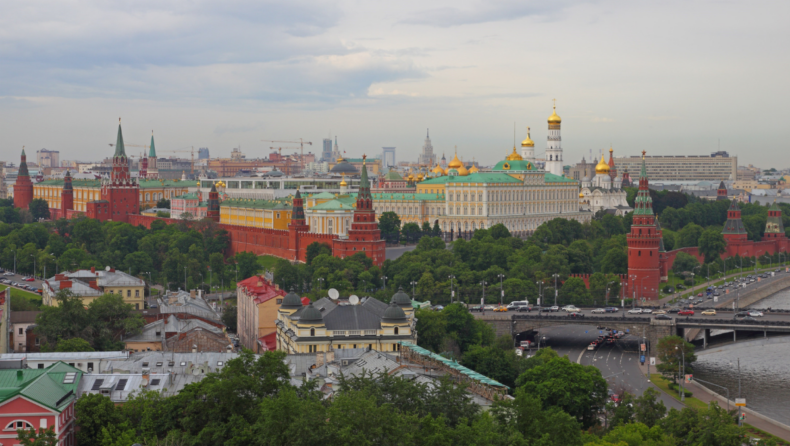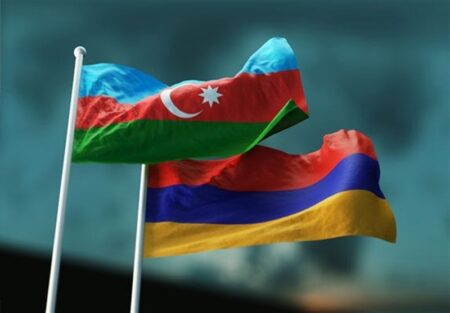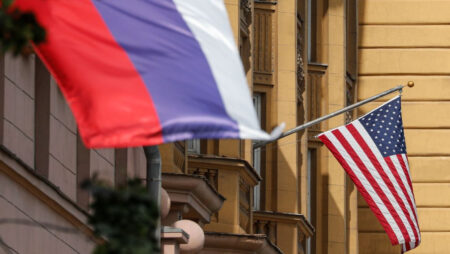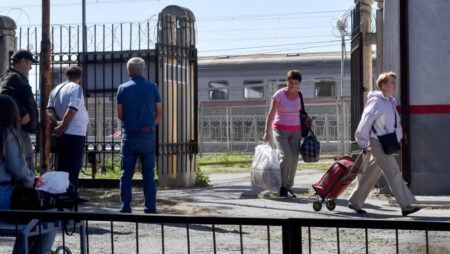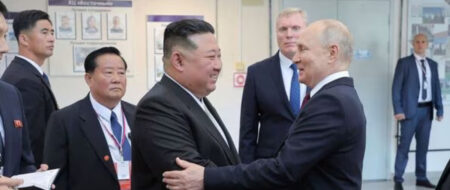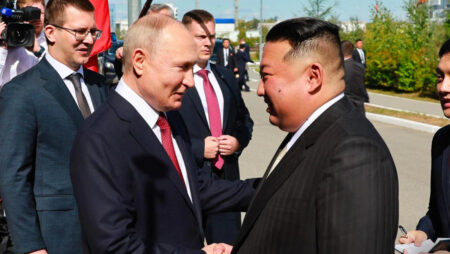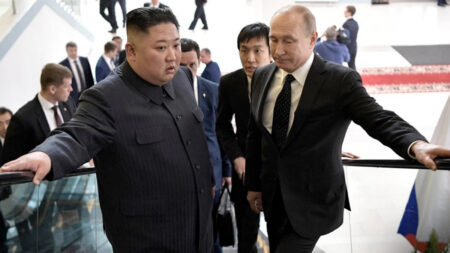According to State Duma speaker Vyacheslav Volodin, the US “pushed” nations that are not engaging in “sanctions wars” to join a “new Big Eight” alliance with Russia “with its own hands.”
As the Ukraine-Russia conflict drags on, State Duma Speaker Vyacheslav Volodin said on Saturday that countries that have so far refused to join the “sanctions war” are being pressured into joining a “new Big Eight” with Moscow.
While Russia was a founding member of the “G8,” its membership was suspended in 2014 following Crimea’s choice to join the country. India, China, Brazil, and Iran are part of the new ‘grouping.’
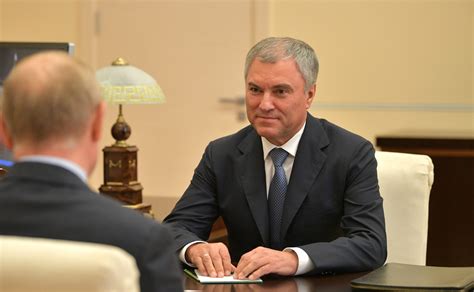
Vyacheslav Volodin, the speaker of the Russian State Duma, United States has “pushed with its own hands” other nations who are not engaging in “sanctions wars” to join a “new Big Eight” group with Russia, he said on Saturday. This group would include Russia.
Following the beginning of Russia’s military offensive in Ukraine in late February, several countries, including the United States, the European Union, the United Kingdom, and many others, imposed severe restrictions on Moscow. As a result, Russia is now the country that is subject to the most sanctions of any nation in the world.
In a post that he made on Telegram, Volodin included a table with IMF data on GDP based on purchasing power parity of countries he calls the “new G8” and of countries forming the current G7.
This is because the G8 effectively became the G7 after Russia’s participation in the bloc was suspended in 2014 over Crimea’s vote to join the country.
According to what Volodin said, “the group of eight nations not engaging in sanctions warfare is 24.4 percent ahead of the old group” in terms of GDP when adjusted for purchasing power parity (PPP). These countries include China, India, Russia, Indonesia, Brazil, Mexico, Iran, and Turkey.
According to his assessment, the economies of the countries that make up the Group of Seven (G7), namely the United States of America, Japan, Germany, Britain, France, Italy, and Canada, continue “to crack under the weight of sanctions imposed against Russia.”
According to Volodin’s assertions, “the rupture of existing economic links by Washington and its allies has led to the emergence of new sites of growth in the world.” Existing economic relations had been disrupted by Washington and its friends.
According to the speaker in the Duma, the United States government keeps “doing everything to solve their issues at the cost of others,” even though the American economy is in serious trouble.
Volodin emphasized that the creation of tensions will “inevitably” result in the United States losing its dominance in the world.
According to what he had to say, “The United States created the conditions with its own hands for countries wanting to build an equal dialogue and relations that are mutually beneficial to create a “new Big Eight” together with Russia.” The United States was responsible for creating these conditions.
In the meantime, on Friday, US Deputy Assistant Secretary of State Eric Woodhouse stated that Washington and its allies had realized that they would get “spillovers” from sanctions against Russia into their economies. Spillovers are negative economic effects that are caused when one country’s sanctions affect another country.
According to him, the steadfastness with which they imposed sanctions on Moscow proved a readiness to “pay those expenses.”
On the same day, US Treasury Secretary Janet Yellen acknowledged that the sanctions against Russia had made a “big difference to food and energy costs.”
This admission comes in the context of record-setting inflation. Following the statement made by Russian President Vladimir Putin, who claimed that “many years of mistakes made by Western nations” in their economic and sanctions policies have resulted in “a global wave of inflation, disruption of established logistical and manufacturing chains, a surge in poverty, and a deficit of food,” the Russian Foreign Minister, Sergei Lavrov, made the following remarks.
Earlier on Friday, President Vladimir Putin had stated that it was difficult to “fence off” a country like Russia from the outside. He made this statement in response to a question from a reporter.
Putin stated that Africa “is still sleeping, but is about to wake up,” and that Russia has the potential to create ties not just with China and India, but also with Latin America as well as Africa, which “is about to wake up.”
India’s foreign policy relies heavily on bilateral ties with Russia, which it regards as a long-standing and tested friend who has helped the country’s economic progress and security.
While India has called for an end to the violence in Ukraine, it has refrained from directly denouncing Russia’s actions.
Instead, New Delhi concentrated on enormous evacuation operations from Ukraine at the start of the conflict, refrained from voting against Russia at the UN, and consistently urged a peaceful and diplomatic settlement.
There is a great deal of complexity to diplomacy. Any overt action has a deep layer of covertness beneath it. This new G8 initiative’s future is unknown. However, one thing is certain: Western hegemony is under serious threat.







